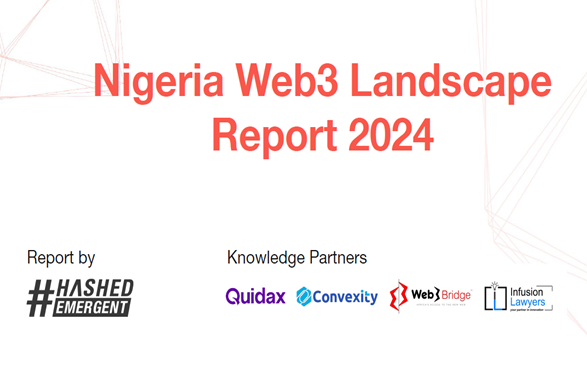by Jude Ayua
Nigeria has made significant progress in tackling money laundering and terrorism financing having achieved upgrades in five key Financial Action Task Force (FATF) recommendations. Nigeria’s achievement received official recognition during the 42nd Inter-Governmental Action Group Against Money Laundering in West Africa (GIABA) Technical Commission and Plenary Meeting held in Freetown, Sierra Leone, from 17 to 23 November 2024. The Nigerian Financial Intelligence Unit (NFIU) announced the development on its LinkedIn page on 25 November.
The Nigerian delegation to the plenary, led by NFIU Chief Executive Officer (CEO) Hafsat Abubakar Bakari, who also serves as Nigeria’s National Correspondent to GIABA, included representatives from the NFIU, Economic and Financial Crimes Commission (EFCC), Special Control Unit against Money Laundering (SCUML), Central Bank of Nigeria (CBN), Securities and Exchange Commission (SEC), Federal Ministry of Justice (FMOJ), Corporate Affairs Commission and Nigeria Export Processing Zones Authority (ΝΕΡΖΑ).
During the plenary, Nigeria’s third Follow-Up Report highlighted significant progress in addressing compliance deficiencies identified during its 2021 AML/CFT Mutual Evaluation. The Plenary commended Nigeria’s progress and its new status. The upgraded five recommendations include:
- Recommendation 23: Other measures for Designated Non-Financial Businesses and Professionals (DNFBPs).
- Recommendation 24: Transparency and beneficial ownership of legal persons.
- Recommendation 25: Transparency and beneficial ownership arrangements.
- Recommendation 28: Regulation and supervision of DNFBPs.
- Recommendation 32: Regulation of cash couriers.
Implications of the FATF grey list
Exiting the FATF grey list is important for Nigeria. Following Nigeria’s placement on the grey list in February 2023, alongside South Africa, Nigeria faced increased international monitoring due to shortcomings in its anti-money laundering (AML) and counter-terrorism financing (CFT) frameworks. The grey listing of Nigeria required it to enhance its economic standing globally and facilitate smoother diaspora remittances. Nigeria became a member of the GIABA in 2021, after which it has submitted 3 reports seeking re-rating in recommendations with Non-Compliant/Partially-Compliant Rating. Today, Nigeria’s status has shifted to Compliant (C)/Largely Compliant (LC) having achieved 37 out of the 40 FATF Recommendations.
NFIU’s establishment and mandate
The NFIU, functioning autonomously within the Central Bank of Nigeria, serves as the central body for receiving disclosures from reporting organizations, analyzing them, and disseminating financial intelligence to competent authorities. The Unit plays a pivotal role in Nigeria’s AML/CFT/CPF framework.
NFIU’s establishment aimed at ensuring global standards that promote effective implementation of legal, regulatory, and operational measures to combat money laundering, terrorist and proliferation financing as outlined in the FATF 40 Recommendations. Its mandate is to safeguard Nigeria’s financial system while contributing to global efforts against financial crimes.
Read also: With Proper regulations, crypto adoption will thrive in Nigeria.
PPP for combating financial crime
The NFIU is partnering with the London Stock Exchange Group’s (LSEG) Risk Intelligence unit to develop a Public-Private Partnerships (PPP) framework to enhance Nigeria’s effectiveness in combating financial crimes. The partnership is critical for not only helping Nigeria exit the grey list but also for sustaining long-term compliance with global standards. The NFIU disclosed the partnership in Abuja on Tuesday 25 November, during a forum discussion the United co-hosted with the LSEG on the theme, “Public-private partnership as a platform to support collaboration among AML/CFT/CPF stakeholders.” NFIU CEO Bakari, while speaking at the event, mentioned Nigeria’s achievement in the five key FATF recommendations.
Read also: Nigeria’s SEC issues ‘Approvals-in-Principle’ to digital assets exchange firms.
LSEG’s Global Head of Financial Crime, Che Sidanios noted that the PPP engagement is the most effective way to tackle financial crimes in Nigeria, noting the forum aimed to build capacity to ensure that Nigeria gets off the grey list and continues to stay off the grey list. He added that no organization can individually tackle financial crimes in Nigeria. He also commended NFIU’s commitment and political will to get the country out of the grey list by 2025.
Head of Risk Intelligence at the LSEG, Ece Kugu, in his presentation titled “The FATF Grey list and the case of Nigeria,” highlighted that countries on the grey list would find it difficult to access necessary loans from international lending institutions to finance projects. They will lose their reputation in the international community and suffer from increased cost of doing business. Ece also said that Nigeria has been on the grey list three times and commended the government’s commitment of aligning its AML/CFT laws with FATF standards.
Read also: As CBN Lifts Restrictions on a List of Crypto Trading Accounts: Prospects for Nigeria’s Crypto Industry.
Cryptocurrency regulation and FATF standards in Nigeria
Nigeria’s upgrade in the FATF recommendations also shows its commitment to enhancing cryptocurrency regulations. With the rapid adoption of digital assets, the FATF’s “Travel Rule” and related measures have become central to AML/CFT strategies globally. Nigeria, a global leader in crypto adoption, ranking second overall on the Chainalysis Global Adoption Index, receiving approximately $59 billion in cryptocurrency value between July 2023 and June 2024, faces unique challenges, including the risks of unregulated crypto asset transfers and their potential exploitation for money laundering or terrorism financing.
Nigeria’s regulatory framework already incorporates FATF standards, as evidenced by the NFIU’s mandate and recent enhancements to its AML/CFT mechanisms. For cryptocurrencies, these standards emphasize transparency, customer verification, and monitoring of cross-border transactions. Nigeria’s steps align with FATF’s growing focus on crypto assets, making it imperative to regulate virtual asset service providers (VASPs) under FATF’s 2019 guidance on cryptocurrencies.
Insight from South Africa’s crypto regulation
Nigeria’s efforts align with recent regulatory developments in South Africa, where the Financial Intelligence Centre (FIC) introduced Directive 9 mid-November mandating Crypto Asset Service Providers to (CASPs) collect users’ data. This move is sequel to South Africa’s effort to exit the FATF grey list and shows its progress in aligning its crypto ecosystem with global standards.
Yellow Card, a top-rank crypto platform that provides stablecoin on- and off-ramp in Africa, recently acquired a CASP license from South Africa’s Financial Sector Conduct Authority. South Africa’s CASP licensing requires compliance with FATF’s Travel Rule, covering the verification of the originators’ and beneficiaries’ information in crypto transactions.
Like South Africa, Nigeria could adopt similar measures, leveraging its NFIU-led AML/CFT infrastructure to ensure crypto transfers adhere to FATF’s rules. Furthermore, adopting a clear regulatory framework would enable Nigerian crypto businesses to expand while maintaining the integrity of the financial system.
Read also: Nigerian SEC raises the bar for VASPs in proposed amendment
Jude Ayua is a policy analyst at CAB. A lawyer, Jude is an associate at Infusion Lawyers where he is a member of the Blockchain & Virtual Assets Group. He is also a member of the Policy & Regulations Committee of the Stakeholders in Blockchain Technology Association of Nigeria (SiBAN). Jude reports and writes on crypto policy and regulations. jude@infusionlawyers.com
Discover more from Crypto Asset Buyer
Subscribe to get the latest posts sent to your email.





